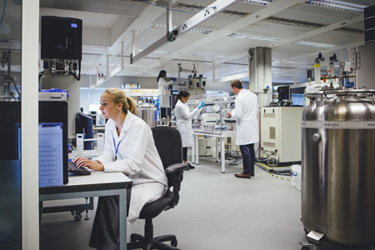Screening T7 Polymerases To Optimize xRNA Yield And Quality
By Jing Zhu, Ph.D., Vice President, Head of Process Development

RNA therapeutics and vaccines are reshaping medicine, and in vitro transcription (IVT) is the foundational process for their production. While the wild-type T7 polymerase offers a reliable standard, engineered variants are introducing significant performance advantages, leading to higher product yields and fewer double-stranded RNA (dsRNA) impurities—a critical quality concern.
Developing the optimal IVT process is complex, involving the precise tuning of multiple components, including the polymerase itself. Understanding how to select the right T7 polymerase is key to accelerating development timelines and managing manufacturing costs.
Delve into the data comparing the performance, cost, and supply chain dynamics of various wild-type and modified T7 polymerases. Find a breakdown of how key factors like yield, dsRNA impurities, and lot-to-lot consistency drive selection decisions in xRNA manufacturing.
Get unlimited access to:
Enter your credentials below to log in. Not yet a member of Cell & Gene? Subscribe today.
